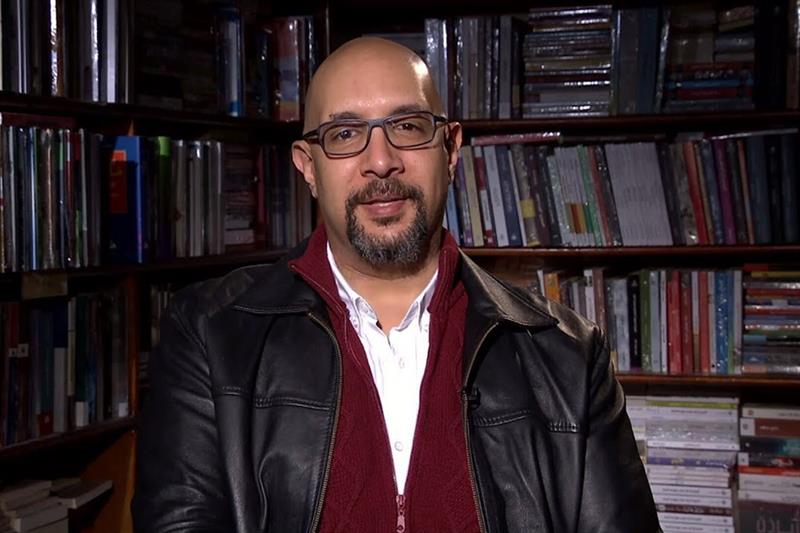
Writer Walid Feckry at the French Cultural Institute s Alexandrian Heritage Days
American University in Cairo
Thurs 11,1-2pm (Online event): “The Blockade Against Qatar: A Blessing in Disguise?” online event features Alexis Antoniades, director and chair of international economics, Georgetown University – Qatar, who will present his work-in-progress on “The Blockade Against Qatar: A Blessing in Disguise?”. On 5 June 2017, the United Arab Emirates, Bahrain, Saudi Arabia, and Egypt cut diplomatic ties with Qatar and initiated a blockade against the country. In his paper, Antoniades provides the first in-depth examination of the blockade’s impact on Qatar’s economy and reviews the policy responses that followed. In particular, he considers how the policies that have since emerged either complimented or deviated from past policies and practices and evaluates whether they have brought long-term benefits to the country –– benefits that may not have been realized had the blockade not taken place. His review finds that the blockade did not cause a shift in policy direction, but it did change the urgency and process by which policies were put together and pushed forward and their effectiveness. The link is https://e.cglink.me/2kZ/r300059922
American University in Cairo
Al-Sheikh Rihan St, off Tahrir Sq, Tahrir Campus, Tel 02 2615 2694/01280009077
Garden Stage
Tues 16, 5-8pm: “Water Scarcity: The Convergence of Water, Food and Climate Security in Egypt and the MENA Region”, a public lecture by Mark Smith,
Director General at the International Water Management Institute. Egypt is at a crossroads on its path of socio-economic development, with choices to be made on water planning, investment and management and how these align with agricultural and food policies. This lecture examines the new paradigm shift in Egypt’s water landscape and how new policies affecting the water sector will shape future water, food and climate security.
French Cultural Institute
Madrasset Al-Huquq Al Frinseya St, Mounira, Tel 02 2791 5800
Media Library
Fri 12, 10-11am: “Story Time with Salma Mohsein” by children’s teacher Salma Mohsein. She takes us on board for a new story hour.
Fri 12, 2pm: “International Nuggets: Novels and Comics Reading Club”, under the theme of man’s relations to others and to his environment, a reading and discussion around the two selected works What are the Stars Dreaming and The Panther’s Discourse by Lucia Salgueiro and Karidad Ragueh.
Italian Cultural Institute
Italy has been celebrating the 700th anniversary of the passing of Dante Alighieri. Also, the Italian Institute continues to post videos in Arabic with translations from Dante Alighieri’s masterpiece The Divine Comedy to bring the Arab-speaking public closer to the work of the supreme poet. Videos are directed by Giabluca Barbadori, with the special participation of Ashraf Farouk, Amir Salaheddin, Sherine Hegazy, and Sara El-Mokadem.
ALEXANDRIA
French Cultural Institute
30 Al Nabi Danial St, Mahatet Misr, Alexandria, Tel 03 3913435/03 3918952
Wed 17, 8pm: “History Debates Cycle: Egypt and France from Bonaparte’s Expedition: The Example of Mehmet-Ali Pasha’s Reign”, as part of the Alexandrian Heritage Days, celebrated by the Center d'Etudes Alexandrines (CEAlex), Egyptian writer and researcher in the field of history Walid Feckry will speak about this privileged link with France, as well as the portraits of French people who worked for the modernization of Egypt. Following the departure of the French in 1801, Egypt saw the emergence of emblematic figures in its history such as Mohamed Ali and Ibrahim Pasha. A great movement of openness and modernity appears then to align Egypt on the Western cultural and scientific level, without neglecting the deep cultural and religious roots of the country. Mohamed Ali perceived as the heir of Napoleon’s ideas in the East, has always maintained relations with the French sovereigns: Napoleon I and the kings Louis XVIII, Charles X and Louis-Philippe. He therefore decided to surround himself with an army of French scientists, the best specialists of the time in the most diverse fields (army, health, navy, agriculture, geography, architecture and Pharaonic heritage ...).
*A version of this article appears in print in the 11 November, 2021 edition of Al-Ahram Weekly
Short link: